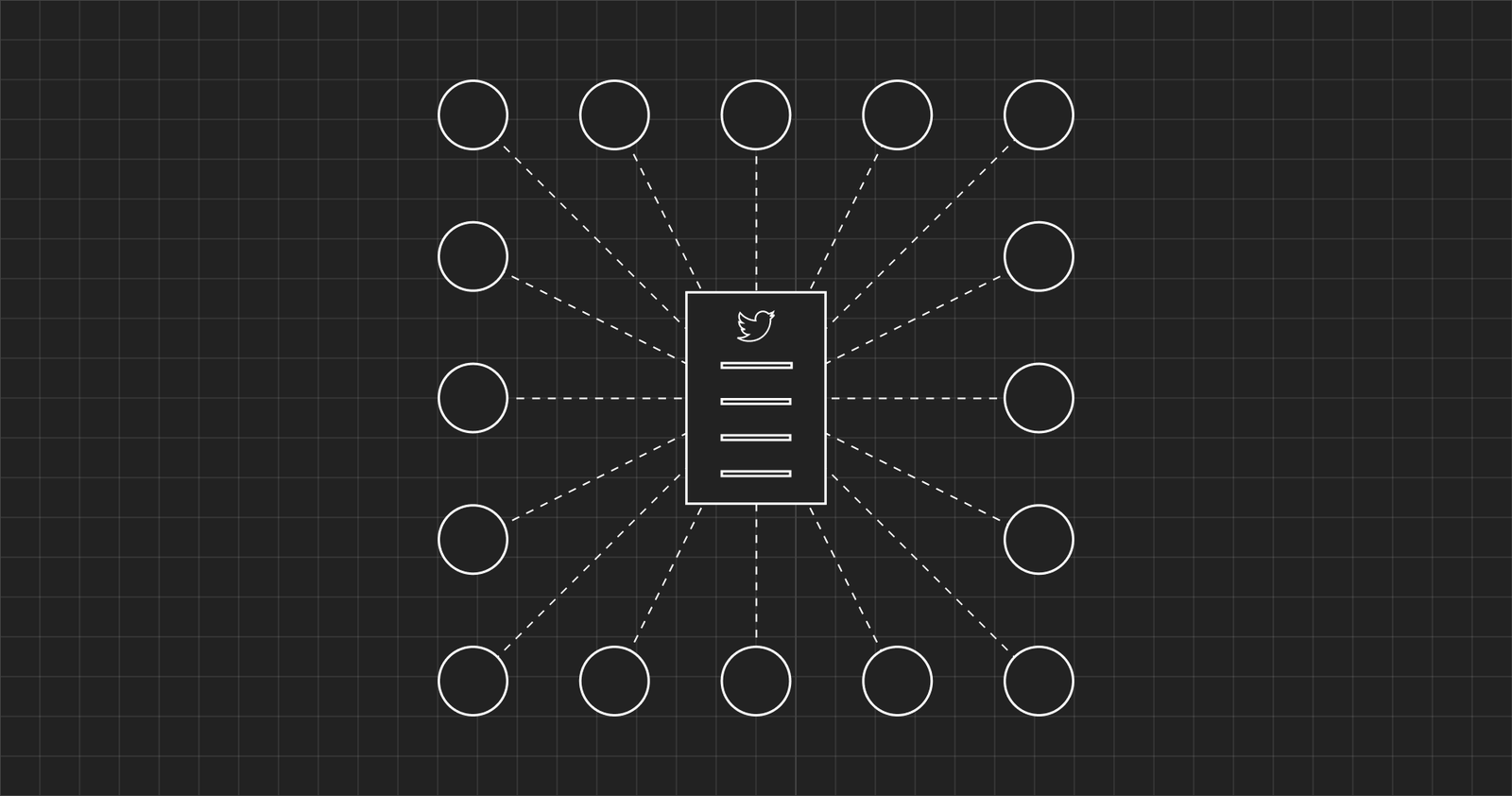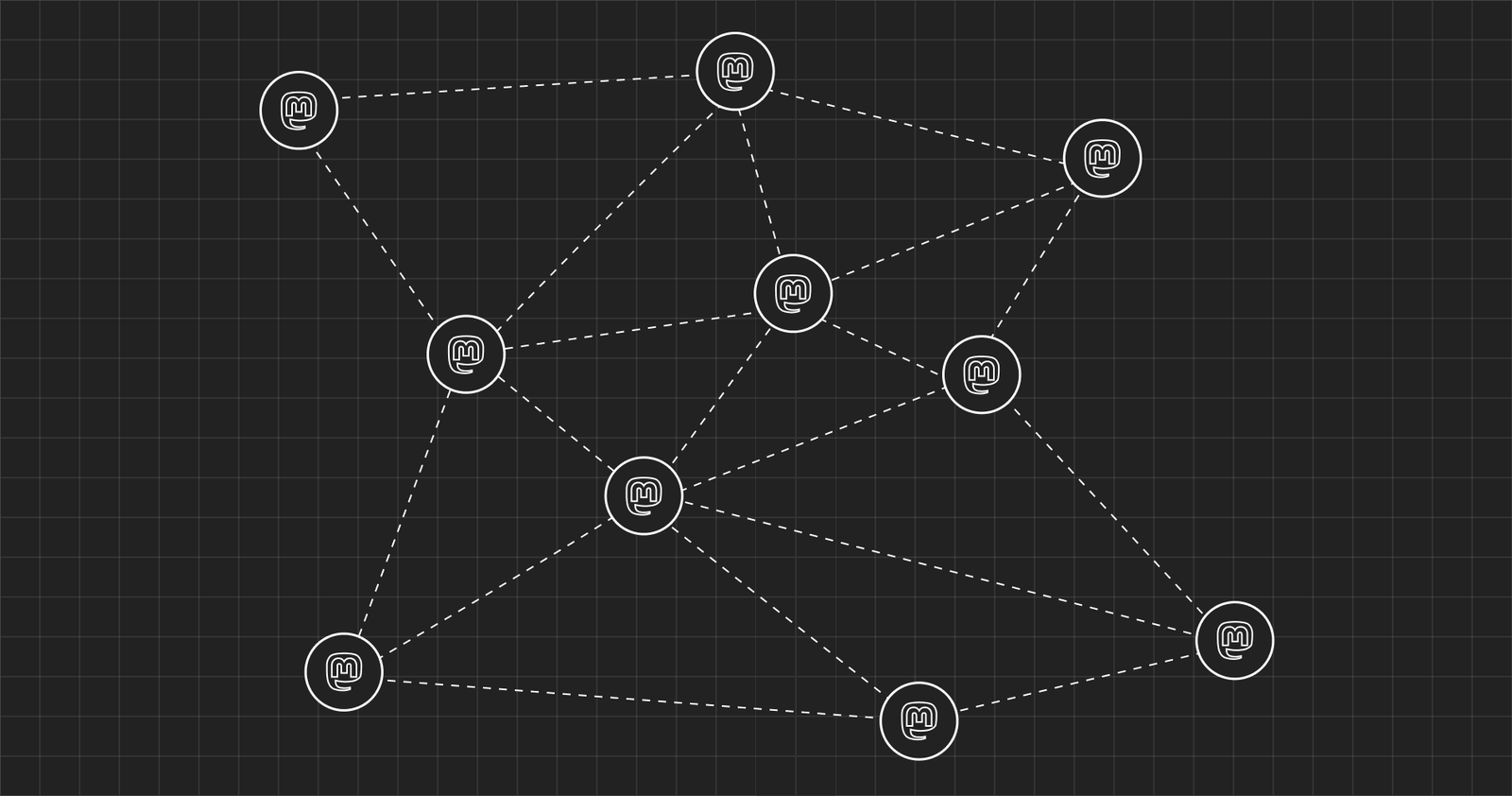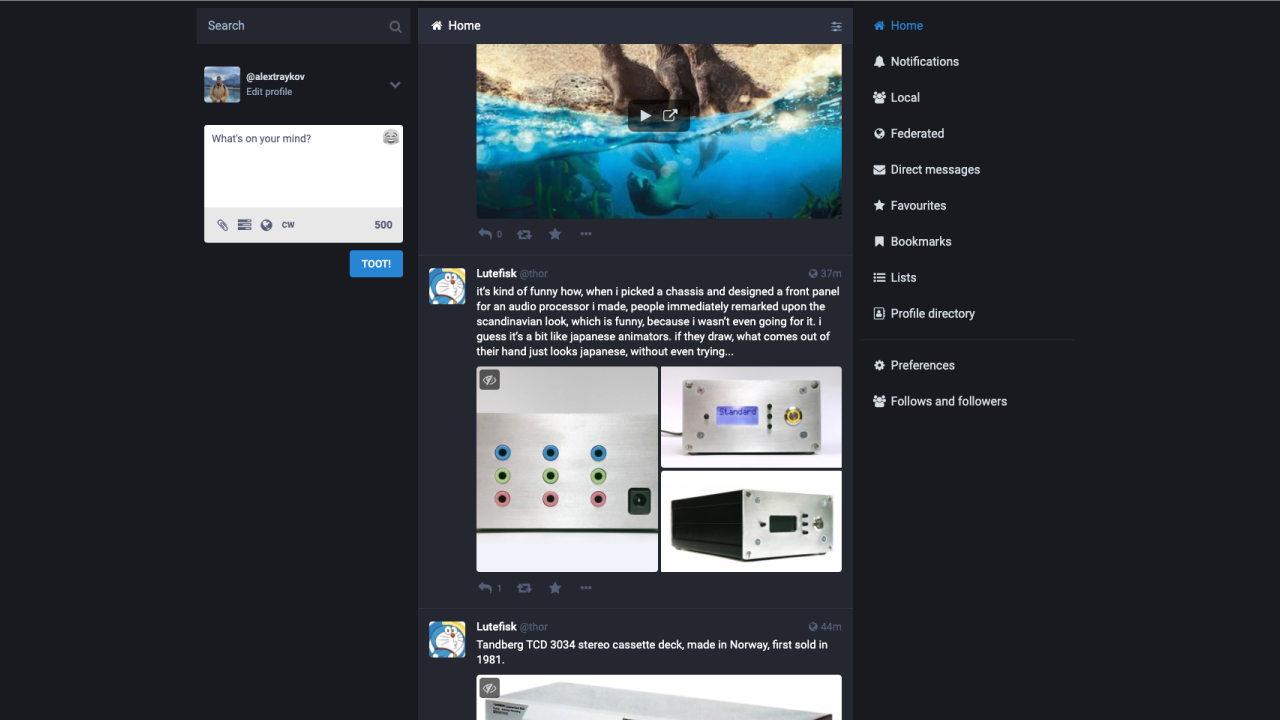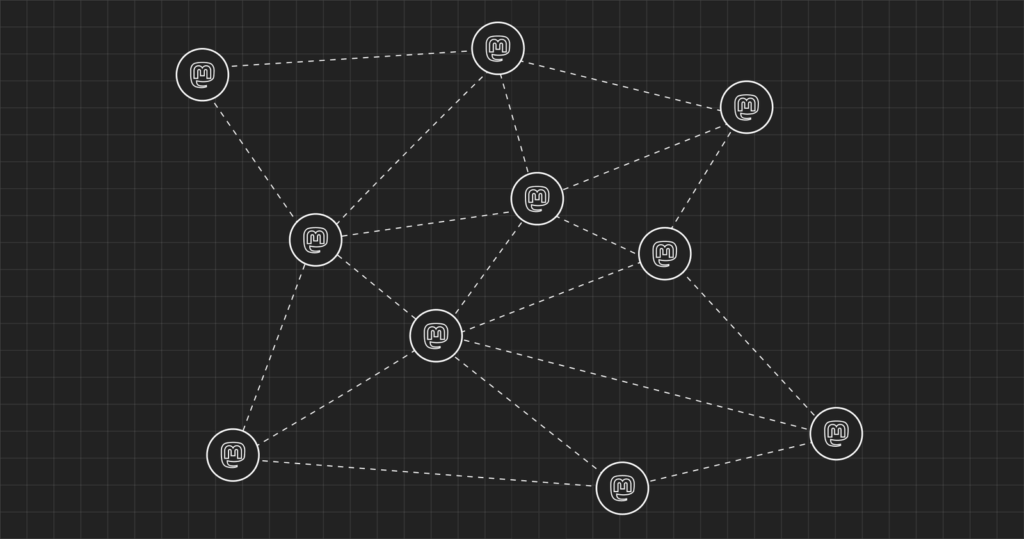Key Takeaways
- Mastodon is a decentralized social media network that provides a solution to data privacy issues inherent in centralized platforms. It was launched in 2016 and its data are distributed across numerous independent servers, known as “instances”, each with its own terms of service and moderation policies.
- The platform operates similarly to email, allowing users to interact across different instances. Each instance can block content from servers they disagree with, without losing access to the Mastodon network. Users can create separate identities across different instances, enhancing the platform’s social connectivity.
- Despite its benefits, Mastodon has a steeper learning curve compared to mainstream social media platforms due to its lack of official apps, its onboarding process, and its complicated server structure. However, it continues to attract millions of new users annually, as they seek a more transparent and user-controlled alternative to existing platforms.
In this article, I’ll introduce Mastodon, a social media network founded in the spirit of a decentralized Internet. A decentralized web has plenty of challenges and is not necessarily for the faint-hearted, but there are good reasons to persevere.
On July 15, 2020, one of the biggest scams in Twitter’s history happened. Through intelligent social engineering, a group of people managed to gain access to Twitter’s administrative tools, allowing them to post tweets directly from several high-profile accounts.
More than 130 influential Twitter accounts were hacked. In a matter of minutes, the profiles of Apple, Bill Gates, Elon Musk, and others asked individuals to send Bitcoin to a cryptocurrency wallet, with the promise that the money sent would be doubled and returned as a charitable gesture.
Within minutes of the initial tweets, more than 300 transactions had already taken place — to a value of over US$180,000 — before Twitter took the scam messages down.
With a centralized structure in place, only a single person with administrative rights needed to be tricked into giving out access to these high-profile accounts. In similar circumstances, someone with a more sinister motive might aim at a stock market crash, fabricated political tension, or even global unrest.
The Pros and Cons of Centralization
Centralization is a double-edged sword. Its core idea is based on the storage, ownership, and protection of your data by a social media platform. While this sounds awful, there are benefits. The first and strongest advantage of centralized platforms is their ease of use. For example, when you forget your password or your account gets hacked, platforms with a centralized structure can recover them with ease, since they store all of your data on their servers.
But this sense of protection comes at a price. Your data — like tweets, retweets, likes, and shares — are stored and owned by a corporation. These companies have yearly financial KPIs, and your data is a great way for them to generate money, primarily when used for targeted advertisements. Another downside to such platforms is that they’re not open source, meaning there’s no transparency between the users and the platform they’re on. As a user, you have no idea what’s happening under the hood or how your data is being handled.

So what if there was a platform with a decentralized structure, where you owned what you posted and you could see what your data was being used for? For a long time, people have tried to create such platforms — App.net, Peach, Diaspora and Ello are a few of the better-known examples.
But the latest pioneer in decentralized social media comes with all of the benefits listed above.
Enter Mastodon
Mastodon was released in 2016. In the eyes of many, this network is the first step in social media decentralization. While similar to Twitter in both appearance and features, Mastodon focuses on the safety and privacy of its user base by being decentralized and federated. All of its data are distributed across a vast number of independent servers, known as “instances”. Each instance has its own terms of service, code of conduct, and moderation policies while working seamlessly together with other servers as a federating network.
The founder of Mastodon, Eugen Rochko, explains that the platform works very similarly to email. Email users can easily connect, even if one person uses Gmail and the other uses Outlook. The same applies to Mastodon and its instances. While users have the freedom to interact with a vast number of instances, each instance can also block content from other servers with policies or content they’re against, without losing access to the entire Mastodon network.

Getting Started with Mastodon
Getting started with Mastodon is not as easy as joining Facebook or Twitter. Since the platform is a federated service, very similar to email, Mastodon lets you sign up to many sites that run the Mastodon client, similar to how you create an email account on services like Gmail, Hotmail or Protonmail.
There isn’t one central place to create a Mastodon account. Instead, you choose a community that you want to be a part of and create an account there.
mstdn.social is for people who want to discover and explore Mastodon, and it’s a good starting point. If you register on this instance, the account you create will be discoverable through the combination of your username and instance name. For example, my full username where you can send me messages is @alextraykov@mstdn.social. You can view your profile name as a combination of your Twitter handle and email address.

You don’t need new accounts for each different Mastodon instance. But if you wish, you can have separate identities that match the various instances you’re interested in. As mentioned previously, since Mastodon is federated, you can interact with other users from different servers without being registered on the same server. This is the most powerful feature of the platform.
But what about mobile? Is there an app where you can scroll through toots and boosts while commuting back home?
There’s no official app for Android and iOS. But because Mastodon is open source, there are numerous third-party apps that allow you to check on your accounts. For Android, a popular pick is Tusky, and for iOS there’s Toot! or Mast. Here’s a full list of apps for mobile, desktop and web.
A Final Take on Mastodon & Decentralized Social Media
While steadily growing, Mastodon is far away from becoming as big as Twitter or any major centralized social network. Due to its lack of official apps, its onboarding process, and its more complicated server structure, Mastodon has a steeper learning curve than the established social media we use daily. But that doesn’t stop millions of new users from joining every year, seeking a more honest alternative to what they currently have.
The future of decentralized social platforms is unclear. Mastodon is one of the first pioneering steps towards something different on the web, like the internet model of the Fediverse. I encourage you to put on your explorer’s hat and set sail towards these new horizons of the internet.
FAQs About Mastodon
Mastodon is an open-source, decentralized social media platform that allows users to create accounts, share posts, and interact with others. It operates on a federated model, meaning multiple independent servers (instances) can communicate with each other, creating a diverse and distributed network.
Unlike traditional social media platforms, Mastodon is decentralized, giving users more control over their data and the ability to choose from various instances with different rules and communities. It also incorporates a chronological timeline and is ad-free, focusing on user experience rather than advertising revenue.
To start using Mastodon, you need to sign up on an instance. You can choose an instance based on your interests, community guidelines, or location. Once registered, you can create and customize your profile, follow other users, and start posting.
Instances are individual servers that make up the Mastodon network. Each instance has its own set of rules and guidelines, creating diverse communities. Users from different instances can still interact with each other, fostering a global network while allowing for localized moderation.
Yes, Mastodon is designed to be federated, allowing users from different instances to interact seamlessly. You can follow, mention, and engage with users on other instances, enhancing the platform’s social connectivity.

